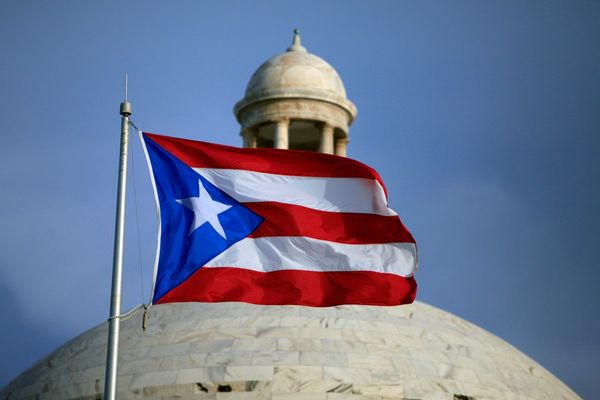By Martin Tornes, Niels Peder Nielsen, Joe Fielding and Seow-Chien Chew
It’s not easy for small companies to grind through the basic operations of running a business. Owners and employees spend a lot of time navigating separate platforms for banking, enterprise resource planning, human resources and payments.
Bank can help contain the sprawl by devising a simple, easy-to-use package that would integrate these functions. Such packages could hold great appeal for small and medium-size enterprises (SMEs), allowing banks to strengthen and expand their role with these companies. Small firms also look for advice and support at transitional moments such as making acquisitions or starting to export. By offering services that address SMEs’ broader needs, banks can position themselves at the center of a valuable ecosystem.

Some banks have made a promising start. For example, ANZ in New Zealand targets start-ups, using monthly subscription fees for its revenue model. It partners with Honcho for setting up businesses, and with other companies such as Xero for accounting. DBS is working with Singtel, the largest telecommunications provider in Singapore, to help SMEs go cashless and build e-commerce businesses. JPMorgan Chase recently acquired payment company WePay, in part, to build a wider suite of business services that already integrate with WePay so that business customers can link their banking accounts to these services and use them more efficiently.
These banks hope to tap new profit pools that they currently do not serve. And there are positive knock-on effects, such as gaining access to the SME customer interface and data, which banks can use to refine their offerings and make operations more efficient. For instance, a bank offering proprietary payment terminals to retailers can see transaction flows and seasonal peaks and troughs, which would allow the bank to anticipate the working-capital needs of its retailer clients.
While ecosystems are still in their early days, we have seen initial forays sort into three approaches.
One offers segment-focused value propositions, typically consisting of traditional bundles of services aimed at a specific industry. Most of the solutions are provided in-house and come with a free account, and the business model counts on increased revenue from acquiring new customers. For example, Deutsche Bank has an offering for medical professionals. Features include a free bank account, information on relevant practices and financial topics, market research and competitor analysis, a profitability benchmarking tool for the customer’s region and specialty, and advisory services on business management.
The second approach consists of life-event ecosystems that capture broad needs during a major event such as starting a business or international expansion. Key events turn into inflection points for banking relationships as they represent significant profit pools and often prompt SMEs to consider switching banks. For example, Santander aims to attract SME clients with exposure to international markets and financial operations by offering nonfinancial services. Santander Trade includes trade services, import financing, leasing, a network hub, an expert call line and other resources aimed at companies in the early stages of international expansion.
The third approach offers a complete solution to a recurring problem. Many models in this category use some form of a payments ecosystem. Commonwealth Bank of Australia, for instance, focuses on merchant payments through point-of-sale terminals with back-end integration. It mines transaction history to improve cash flow management. In another flavor of the approach, BBVA Compass Bancshares uses data analytics to enhance the sales of SMEs. It has an online tool that provides useful statistics and information, such as details about SMEs’ customers, the level of customer loyalty, share of wallet, market research and competitor analysis.
While each model is different, those showing early signs of success do share certain traits. They build on strong existing platforms rather than standalone applications or products. They choose a focused theme, such as a narrow set of industries or a life event, and avoid broad, catch-all solutions. They design the ecosystem around core banking needs, where they have higher credibility, rather than striving to appear new and different. And they use partnerships to minimize complexity when entering adjacent services. Developing a point-of-sale terminal, for instance, is not a trivial endeavor and is better handled by a partner.
Embracing uncertainty
As banks put these ecosystems into operation, they will need to navigate uncharted territory and deal with new situations. For example, a partner might not deliver as promised, which could affect the bank’s credibility as the organizer of the ecosystem. To monetize additional services, banks will have to choose among a referral fee from the partners, a commission and revenue sharing, or offer free or discounted services in return for better retention and richer customer data.
Governance, structure, accountabilities and ways of working all might have to evolve. That’s what it will take to build a thriving ecosystem through which corporate banking units can strengthen their SME relationships and, over the long run, improve their economics. SME ecosystems are evolving quickly, and banks considering moves into this realm will benefit by learning from the pioneers.
Read more: Small Business Ecosystems—Banks’ Next Challenge
Martin Tornes, Niels Peder Nielsen, Joe Fielding and Seow-Chien Chew are partners with Bain & Company’s Financial Services practice. They are based, respectively, in Copenhagen, Copenhagen, New York and Singapore.







